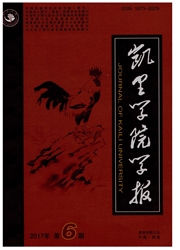

 中文摘要:
中文摘要:
随着全球化进程的加剧,人们愈加意识到不同民族文化之间进行文明对话的必要。同时,尊重和保护传统知识特别是土著人民的传统知识的呼声也愈来愈高。何为"土著"?中国是否有"土著"之说?正是在"原住民/土著"话语的背景下,以汉语文献情境中的土著为对象,重新梳理和反思与"土著"相关的"文明与野蛮"、"先进与落后",指出"礼失求野"中"野"的回向与重要意义。同时,在"原住民"话语的观照中,强调人类对自身历程的反观并非一时举措,而是孔子早已倡导的"欲居九夷"之延续。
 英文摘要:
英文摘要:
With the intensification of globalization,more and more people are aware of the urgent need for dialogues between different cultures.At the same time,the voice of respecting and protecting of traditional knowledge,especially the traditional knowledge of indigenous peoples is also rising.What is the "indigenous" ? Does China have "Indigenous"? It is in the context of aboriginal / indigenous discourse,this article aimed to re-comb,and reflect on the relationship with the "indigenous" and " civilization and barbarism ","advanced and backward," and other words based on an analysis of "indigenous" in Chinese literature,pointed out that "return of wild " in " Losing rites and becoming wild" is important.Meanwhile,in the contemplation of the "aboriginal" discourse,the author argued that reflection of human process is not a temporary measure,but a continuation of "living for long" advocated by Confucius
 同期刊论文项目
同期刊论文项目
 同项目期刊论文
同项目期刊论文
 期刊信息
期刊信息
